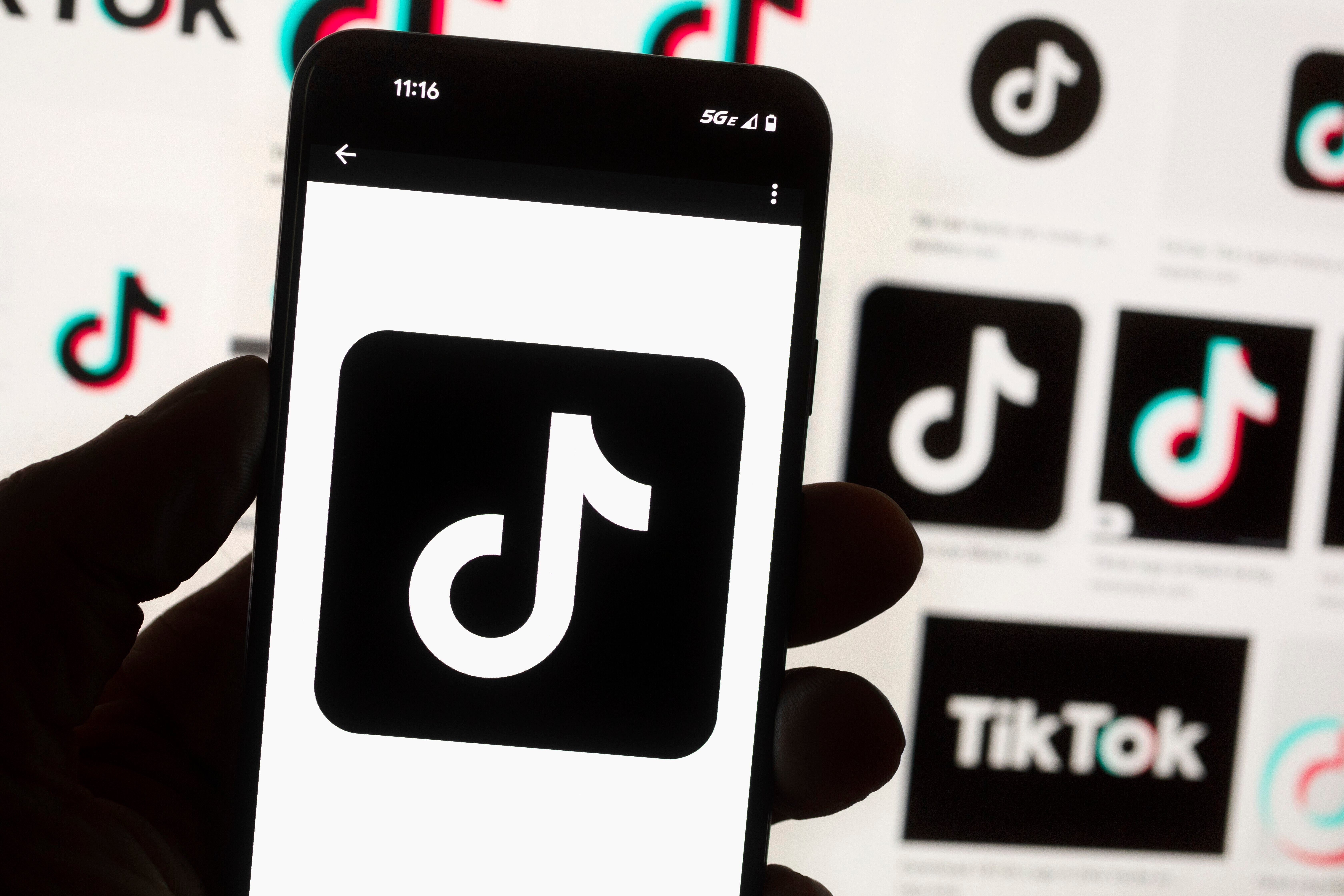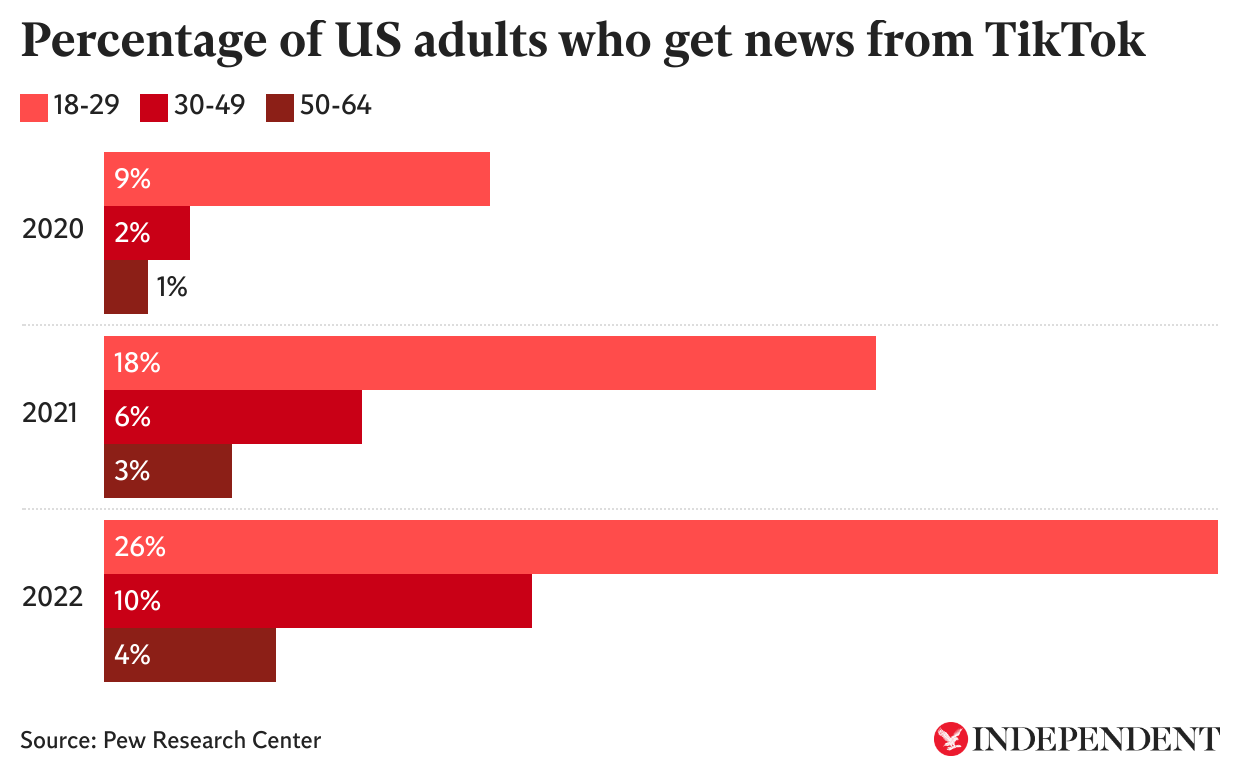The Independent's journalism is supported by our readers. When you purchase through links on our site, we may earn commission.
TikTok increasingly used as news source amid misinformation fears
Trend coincides with warnings relating to the US midterm elections

An increasing number of US adults say they regularly get their news from TikTok, according to new research, despite growing concerns of the viral video app being a vector for misinformation.
A survey conducted by Pew Research Center revealed that more than a quarter of adults under 30 now consume news through the Chinese-owned social media giant, compared to just 9 per cent in 2020.
This contrasts to the trend seen by other social media sites, where news consumption has begun to decline in recent years.
“In just two years, the share of US adults who say they regularly get news from TikTok has roughly tripled, from 3 per cent in 2020 to 10 per cent in 2022,” said Katerina Eva Matsa, an associate director of journalism research at Pew Research Center.
“More of TikTok’s US adult users are getting news there as well. Currently, a third of TikTok users say they regularly get news on the site, up from 22 per cent who said the same in 2020.”

In that same time period, the percentage of Facebook users who said they regularly get news from the site fell from 57 per cent to 44 per cent, while the percentage of Twitter users who said the same fell from 59 per cent to 53 per cent.
Separate research from digital watchdog Global Witness and the Cybersecurity for Democracy team at New York University found that TikTok may be susceptible to widespread misinformation campaigns targeting the US midterm elections.
According to the preliminary study, TikTok approved 90 per cent of advertisements featuring election misinformation that the researchers submitted. Examples of misleading information included the wrong election date and false claims about voting requirements.
“TikTok performed the worst out of all of the platforms tested in this experiment, with only one ad in English and one ad in Spanish – both relating to covid vaccinations being required for voting – being rejected,” the researchers noted.
“Ads containing the wrong election day, encouraging people to vote twice, dissuading people from voting, and undermining the electoral process were all approved.”
TikTok has put in place policies in recent months in an effort to counter the spread of misinformation, though it continues to lag behind social media rivals like Facebook.
“TikTok is a place for authentic and entertaining content which is why we prohibit and remove election misinformation and paid political advertising from our platform,” a spokesperson for TikTok said. “We value feedback from NGOs, academics, and other experts which helps us continually strengthen our processes and policies.”
The company recently released guidelines to ensure election integrity, with TikTok’s head of US safety Eric Han writing in a blog post that the platform took its responsibility to protect users from such content “with the utmost seriousness”.
Join our commenting forum
Join thought-provoking conversations, follow other Independent readers and see their replies
Comments
Bookmark popover
Removed from bookmarks